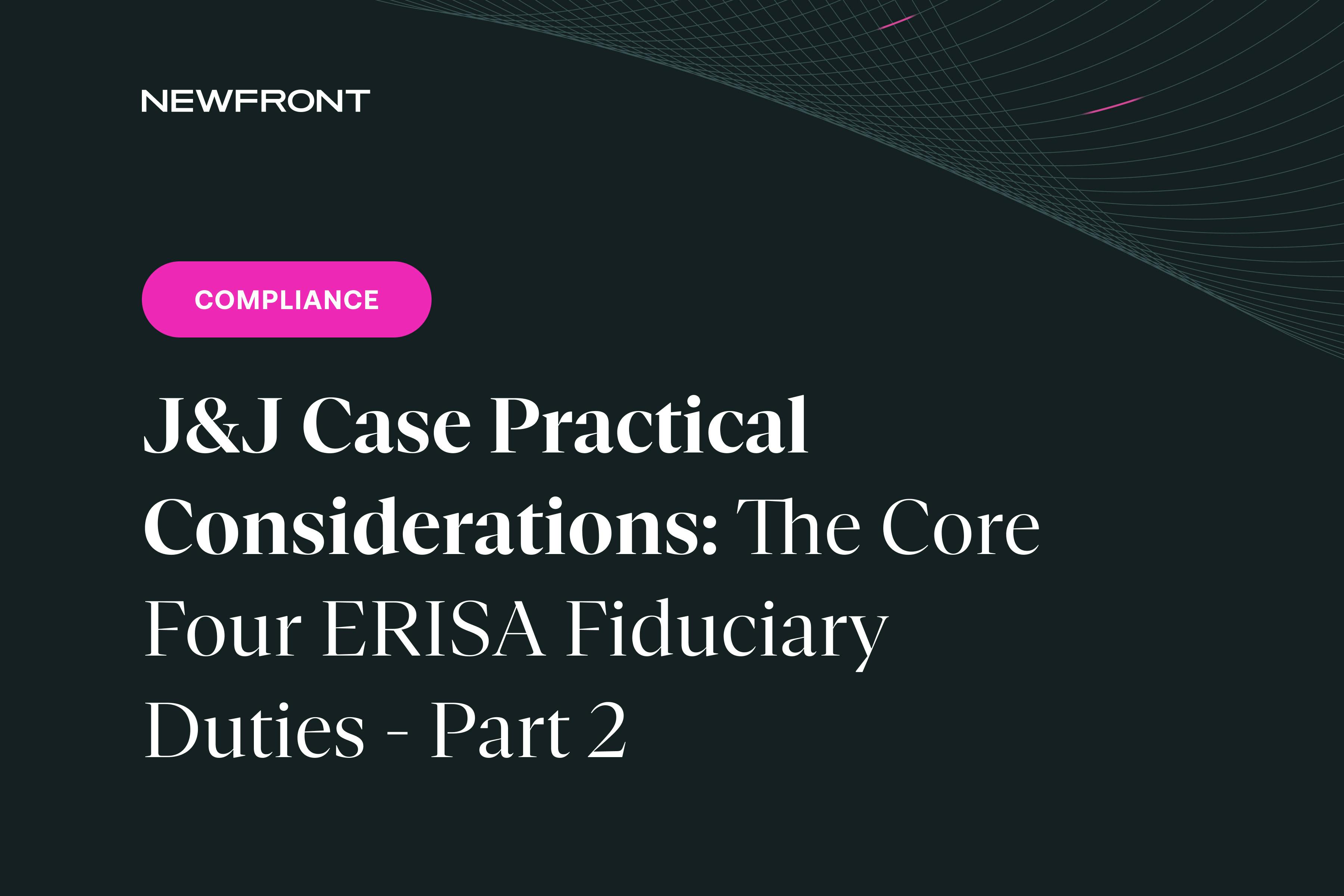Commuter Benefits upon Termination of Employment
By Brian Gilmore | Published April 28, 2017
Unused commuter benefits can’t be refunded to employees.
Question: What happens to commuter benefits upon termination from employment?
Compliance Team Response:
IRC Sec. 132(f) governs commuter benefit plans, and it strictly prohibits participation for terminated employees. It also prohibits cashing out terminated employees on the unused amount of their contributions. This means that when an employee terminates employment, the employee must forfeit unused commuter benefits.
Date of Termination
The date that the employee terminates participation can be no later than the date the employee terminates employment. It would violate Sec. 132(f) to allow participation through the end of the month in which the employee terminates. That could result in the commuter benefit plan being disqualified, causing all elections to become taxable to all employees.
Run-Out Period
Note that this rule prohibiting participation after the date the employee terminates employment does not prevent the employer from having a run-out period. Most plans will include a run-out period for parking expenses for which claims can be submitted that were incurred on or before the employee’s termination date (typically 90 days). This is not an option for mass transit expenses because those must be directly paid at the time by the debit card (transit reimbursement is now prohibited).
For example, if an employee terminated employment today, he could use the mass transit debit card through the end of the day. For parking, he could be reimbursed during the run-out period for his qualifying parking expenses incurred up to and including today, but not for any day after that. After the run-out period has closed, any remaining amount is forfeited to the employer.
Forfeitures
Because commuter benefits are not subject to ERISA, we are not restricted by the ERISA prohibition on employee contributions reverting to the employer. Therefore, the forfeited amounts can be retained by the employer, used to pay plan administrative expenses, contributed to other participants’ commuter accounts on a uniform basis, etc.
Summary
Unfortunately, the tax rules here are strict. Terminated employees cannot use the commuter funds, and employers cannot provide a cash refund to terminated employees who forfeit any remaining balance after termination and the run-out period.
Forfeited amounts can be retained by the company, used to plan administrative expenses, or allocated evenly to accounts of other participants.
We strongly recommend not making an exception to these requirements. Failure to follow these rules by permitting this type of exception runs the risk that all employees will lose the pre-tax benefit of their commuter elections if discovered by the IRS. The TPA usually will specifically disclaim all potential liability for this reason if you request an override.
Sample Message to Employee
Here is a message we have used in the past for this purpose:
The Internal Revenue Code governs commuter benefit plans. Pursuant to IRS regulations, employees who cease to participate in the plan (for example, because of termination of employment) must forfeit any contribution amounts remaining in their commuter benefit account.
The Company cannot make any exception to these forfeiture requirements. Failure to follow the terms of the Internal Revenue Code and applicable IRS regulations could cause the entire commuter benefit plan to lose its tax-advantaged status. If this were to occur, all of the company’s employees participating in the commuter benefit plan would be taxed on their commuter benefit elections.
There are no tax reporting or other related tax consequences associated with the forfeiture because your contributions to the commuter account were made on a pre-tax basis.
Regulations:
Treas. Reg. Sec. 1.132-9, Q/A-5:
**Q-5. **May qualified transportation fringes be provided to individuals who are not employees?
**A-5. **An employer may provide qualified transportation fringes only to individuals who are currently employees of the employer at the time the qualified transportation fringe is provided. The term employee for purposes of qualified transportation fringes is defined in §1.132-1(b)(2)(i). This term includes only common law employees and other statutory employees, such as officers of corporations. See Q/A-24 of this section for rules regarding partners, 2-percent shareholders, and independent contractors.
Treas. Reg. Sec. 1.132-9, Q/A-14(d):
(d) Compensation reduction amounts not refundable. Unless an election is revoked in a manner consistent with paragraph (c) of this Q/A-14, an employee may not subsequently receive the compensation (in cash or any form other than by payment of a qualified transportation fringe under the employer’s plan). Thus, an employer’s qualified transportation fringe benefit plan may not provide that an employee who ceases to participate in the employer’s qualified transportation fringe benefit plan (such as in the case of termination of employment) is entitled to receive a refund of the amount by which the employee’s compensation reductions exceed the actual qualified transportation fringes provided to the employee by the employer.
Revenue Ruling 2014-32:
http://www.irs.gov/pub/irs-drop/rr-14-32.pdf
Accordingly, the provision included in Rev. Rul. 2006-57 permitting employers to use cash reimbursement if the only available voucher or similar item is a terminal-restricted debit card is no longer warranted. Beginning after December 31, 2015, in order to provide time for employers to comply, employers are no longer permitted to provide qualified transportation fringe benefits in the form of cash reimbursement in geographic areas where a terminal-restricted debit card is readily available.

Brian Gilmore
Lead Benefits Counsel, VP, Newfront
Brian Gilmore is the Lead Benefits Counsel at Newfront. He assists clients on a wide variety of employee benefits compliance issues. The primary areas of his practice include ERISA, ACA, COBRA, HIPAA, Section 125 Cafeteria Plans, and 401(k) plans. Brian also presents regularly at trade events and in webinars on current hot topics in employee benefits law.
Connect on LinkedIn

